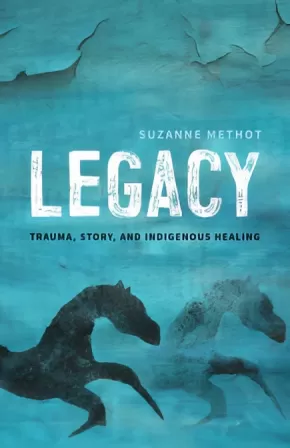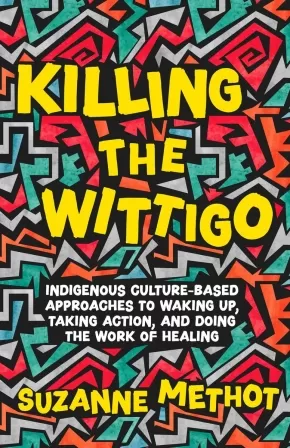Suzanne Methot
Suzanne Methot is a Nehiyaw (Cree) writer, editor, educator, and community worker born in Vancouver, British Columbia, and raised in Peace River, Alberta. Her work has been published in anthologies including Steal My Rage: New Native Voices and Let the Drums Be Your Heart. She has worked in the non-profit sector, in the classroom, and in advocacy and direct-service positions in Indigenous community–based agencies. She is co-author of the textbook Aboriginal Beliefs, Values, and Aspirations, and she currently lives in Toronto, Ontario.
Books (1)
Synopsis:
Exploring intergenerational trauma in Indigenous communities — and strategies for healing — with provocative prose and an empathetic approach
Indigenous peoples have shockingly higher rates of addiction, depression, diabetes, and other chronic health conditions than other North Americans. According to the Aboriginal Healing Foundation, these are a result of intergenerational trauma: the unresolved terror, anger, fear, and grief created in Indigenous communities by the painful experiences of colonialism, passed down from generation to generation.
How are we to turn this desperate tide? With passionate argumentation and chillingly clear prose, author and educator Suzanne Methot uses her own and others’ stories to trace the roots of colonial trauma and the mechanisms by which trauma has become intergenerational, and she explores the Indigenous ways of knowing that can lead us toward change.
Reviews
“This book is accessible, relatable, and full of storytelling about real people. It deeply resonates with me as a traditional counsellor, educator, and Indigenous person. Suzanne Methot, a brave Nehiyaw writer and community helper, takes up the challenges of logically explaining a child’s traumatized brain and body and how these impacts continue into adulthood. Methot also explores Indigenous health-care models, proving that Indigenous values provide solutions. This book uncovers the critical need for legislation that moves from creating ‘a renewed relationship’ with Indigenous peoples to creating real structural change.” — Dr. Cyndy Baskin, Mi’kmaq Nation, Associate Professor, School of Social Work, Ryerson University
Educator Information
A version of this work for young adults is available here: Killing the Wittigo: Indigenous Culture-Based Approaches to Waking Up, Taking Action, and Doing the Work of Healing
Additional Information
368 pages | 5.50" x 8.50"
Teen Books (1)
Synopsis:
An unflinching reimagining of Legacy: Trauma, Story, and Indigenous Healing for young adults.
Written specifically for young adults, reluctant readers, and literacy learners, Killing the Wittigo explains the traumatic effects of colonization on Indigenous people and communities and how trauma alters an individual’s brain, body, and behavior. It explores how learned patterns of behavior — the ways people adapt to trauma to survive — are passed down within family systems, thereby affecting the functioning of entire communities. The book foregrounds Indigenous resilience through song lyrics and as-told-to stories by young people who have started their own journeys of decolonization, healing, and change. It also details the transformative work being done in urban and on-reserve communities through community-led projects and Indigenous-run institutions and community agencies. These stories offer concrete examples of the ways in which Indigenous peoples and communities are capable of healing in small and big ways — and they challenge readers to consider what the dominant society must do to create systemic change. Full of bold graphics and illustration, Killing the Wittigo is a much-needed resource for Indigenous kids and the people who love them and work with them.
Educator Information
Recommended for ages 12 to 17.
The adult version of this book can be found here: Legacy: Trauma, Story, and Indigenous Healing
Additional Information
160 pages | 5.50" x 8.50" | Paperback








